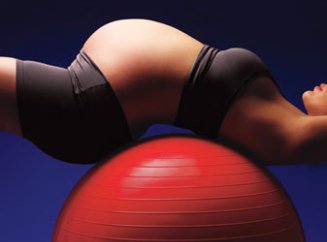For many modern women, attention to their physical form is the norm. They enjoy visiting gyms, and would like to continue to do this during pregnancy. It is obvious that the changes occurring in the body of the future mother will require adjustment of the duration, type and intensity of trainings. After all, the main goal is mdash; health support and maternal and fetal safety.
No matter what kind of exercise you like, there is a set of simple rules that you must follow in order not to endanger yourself or the future baby. These rules are as follows:
- your heart rate should not exceed 140 beats per minute;
- intense physical activity should last more than 15 minutes;
- after the fourth month of pregnancy, you can not perform exercises lying on your back;
- body temperature should not exceed 38C;
With the development of pregnancy, an increase in the volume of the uterus and mammary glands occurs, the center of gravity changes, and therefore pain in the sacroiliac joint is typical. Therefore, exercises with low return is especially recommended for future mother - swimming and walking.
Contraindications to physical activity:
- myocarditis;
- heart failure;
- phlebitis and thrombophlebitis;
- infectious diseases;
- obstetric pathologies;
- severe hypertension;
- visual impairment;
- dyspnea;
- tachycardia;
- fatigue.
In each workout, it is recommended to perform special exercises to strengthen the muscles of the pelvic floor, as well as the muscles of the abdominal press, buttocks and diaphragm. This will ensure the strength and elasticity of muscle fibers.
Exercise during pregnancy, practiced constantly, has a beneficial effect on reducing the perception of pain and stress during childbirth. Before starting an exercise program, it is advisable to consult a gynecologist. Consultation will help you to avoid too intense workloads. In the second and third trimester, the frequency, intensity and duration of exercises should be gradually reduced. Do not exercise on an empty stomach, eat about an hour before training, preferring a light snack. To avoid dehydration, consume enough water before, during, and after exercise. If you have joint pain, dizziness, or bleeding then stop classes immediately and seek for some help.
















